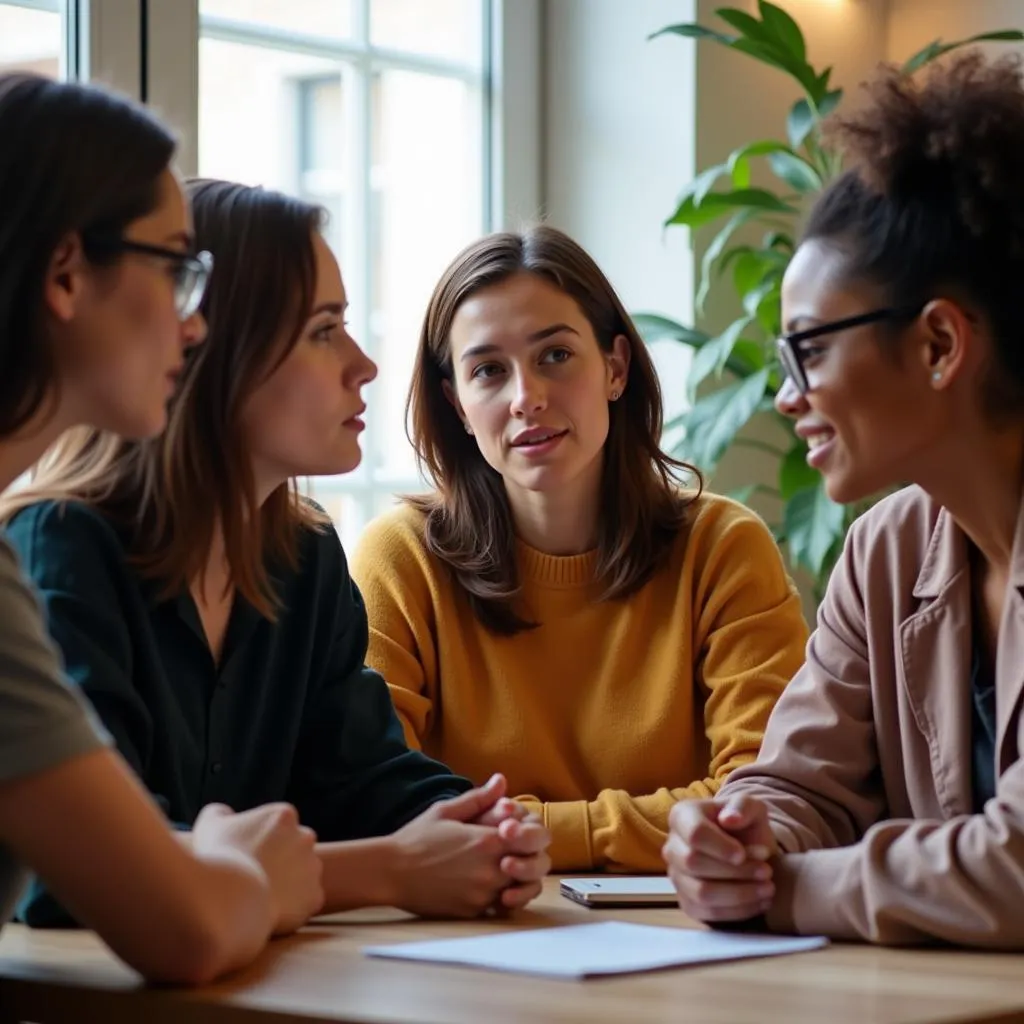The phrase “Society Hates Men” has been circulating online, often fueling heated debates and exacerbating tensions between genders. While it’s crucial to acknowledge and address genuine struggles faced by men, framing the issue as societal hatred towards an entire gender is not only inaccurate but also counterproductive to fostering understanding and positive change. This article aims to delve into the complexities behind this sentiment, exploring the underlying issues that contribute to this perception and emphasizing the importance of nuanced dialogue in promoting equality and respect for all.
 Men Feeling Isolated in Modern Society
Men Feeling Isolated in Modern Society
Deconstructing “Society Hates Men”: A Closer Look at Gender Dynamics
The feeling that “society hates men” often stems from a place of genuine frustration and a perceived lack of understanding regarding the challenges men face. Men, like women, navigate complex societal expectations and pressures that can contribute to feelings of isolation, inadequacy, and anger. Some common factors fueling this sentiment include:
- Traditional Masculinity Norms: Societal expectations of men as stoic, emotionally inexpressive providers can be incredibly stifling. These rigid norms limit emotional expression, vulnerability, and the pursuit of diverse aspirations.
- Double Standards in Relationships and Parenting: Men often encounter different expectations and judgments in relationships and parenting roles. They may feel pressure to be the primary breadwinner while simultaneously being criticized for traditional parenting approaches.
- Mental Health Stigma: Men often face significant barriers in seeking help for mental health issues due to societal expectations of strength and self-reliance. This stigma prevents many men from accessing the support they need, leading to feelings of isolation and despair.
It’s vital to acknowledge that these challenges, while significant, do not equate to societal hatred towards men. Instead, they highlight the complexities of gender roles and the need to challenge harmful stereotypes that impact everyone, regardless of gender.
 Diverse Group of People Engaging in Meaningful Conversation
Diverse Group of People Engaging in Meaningful Conversation
Shifting the Narrative: From Blame to Constructive Dialogue
Framing the issue as “society hates men” fosters division and hinders productive conversations about gender equality. It’s crucial to shift the narrative away from blame and towards understanding, empathy, and collaboration. Here’s how we can work towards a more constructive approach:
- Promoting Open and Honest Communication: Creating safe spaces for men and women to discuss their experiences, anxieties, and aspirations is crucial. Open dialogue helps bridge divides, fosters empathy, and dismantles harmful stereotypes.
- Challenging Harmful Gender Stereotypes: Both men and women need to actively question and challenge rigid gender roles that limit personal growth and perpetuate harmful power imbalances.
- Supporting Initiatives Promoting Gender Equality: Supporting organizations and initiatives that advocate for gender equality is essential. By working together, we can create a more equitable and just society for everyone.
Building a Future of Respect and Understanding
It’s important to remember that progress requires empathy, understanding, and a willingness to listen to one another. Instead of perpetuating divisive rhetoric, let’s focus on fostering respectful dialogue and creating a future where everyone feels seen, heard, and valued.
Remember, the goal is not to pit genders against each other but to build bridges of understanding and work collaboratively towards a society that celebrates the unique strengths and perspectives of all individuals.
Frequently Asked Questions
1. Does acknowledging men’s issues diminish the struggles faced by women?
Absolutely not. Recognizing the challenges faced by one gender does not negate or diminish the experiences of another. It’s about recognizing that gender equality is not a zero-sum game; progress for one group benefits everyone.
2. How can I contribute to positive change in gender relations?
Start by examining your own biases, challenging stereotypes, and engaging in respectful conversations with those around you. Support organizations promoting gender equality and be an ally for those experiencing discrimination.
3. What are some practical ways to challenge traditional masculinity norms?
Encourage emotional expression in boys and men, challenge the idea that vulnerability is a weakness, and support men in pursuing diverse career paths and interests outside of traditional expectations.
4. How can we create safer spaces for men to discuss their mental health?
By normalizing conversations about mental health, actively challenging the stigma surrounding men seeking help, and promoting accessible and men-inclusive mental health resources and support groups.
5. Where can I find more information and resources on gender equality and men’s issues?
Numerous organizations and websites provide valuable resources and information on these topics. You can explore reputable sources like [Name of Organization 1], [Name of Organization 2], and [Name of Organization 3] to learn more and get involved.
For further assistance and support, please contact:
Phone Number: 02043854663
Email: [email protected]
Address: Khu 34, Bắc Giang, 260000, Vietnam
Our dedicated team is available 24/7 to provide support and answer your questions.